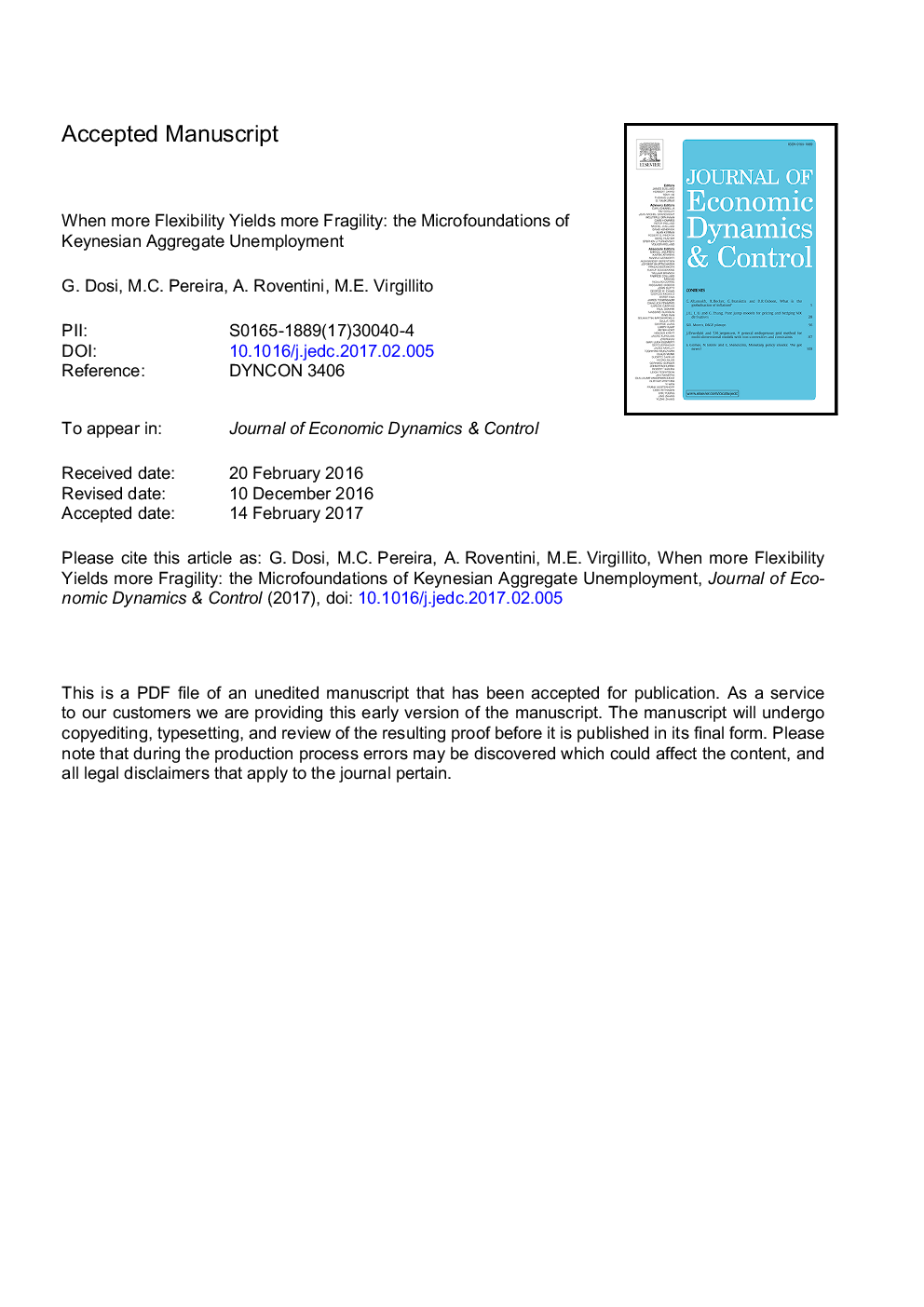| Article ID | Journal | Published Year | Pages | File Type |
|---|---|---|---|---|
| 5098001 | Journal of Economic Dynamics and Control | 2017 | 43 Pages |
Abstract
Wages are an element of cost crucially affecting the competitiveness of individual firms. But the wage bill is also a crucial element of aggregate demand. Hence it could be that more “flexible” and “fluid” labour markets, while allowing for faster inter-firm reallocation of labour, may also render the whole economic system more fragile, more prone to recession, and more volatile. In this work, we investigate some conditions under which such a conjecture applies. The paper presents an agent-based model that investigates the effects of two “archetypes of capitalism” - in terms of regimes of labour governance defined by the mechanisms of wage determination, firing, labour protection and productivity gains sharing - upon (i) labour market regularities and (ii) macroeconomic dynamics (long-term rates of growth, GDP fluctuations, unemployment rates, inequality, etc.). The model is built upon the “Keynes meets Schumpeter” family of models (Dosi et al., 2010), explicitly incorporating different microfounded labour market regimes. Our results show that seemingly more rigid labour markets and labour relations are conducive to coordination successes leading to higher and smoother growth.
Related Topics
Physical Sciences and Engineering
Mathematics
Control and Optimization
Authors
G. Dosi, M.C. Pereira, A. Roventini, M.E. Virgillito,
